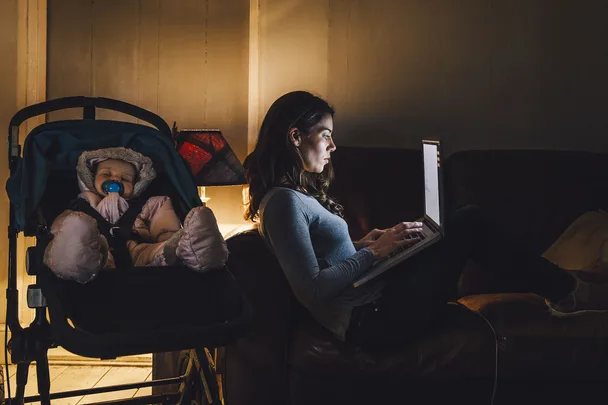While it’s not uncommon that women are known to take on more demanding roles when it comes to work, new consumer research commissioned by Steggles has proved just that. The study has found that while Australians are working longer hours than ever before, 77 per cent agree that its women who are the most hard-working. On top of the research finding that women are considered the most hard-working, 89 per cent feel that women deserve greater recognition for the work they do.
Clare Rowe, a child and family psychologist, attributes unpaid labour as the cause. “I think essentially it is because unpaid labour has long disproportionately fallen on women’s shoulders,” she says. “Women spend, on average, over double the amount of time on a daily basis performing domestic duties and housework.
“Traditionally we have always thought of men as the ones making the sacrifice away from their families by putting in overtime at the office, but new research shows that sacrificing family time for work is no longer gender-specific. Perhaps we need to have a re-think about who we assume is taking on the burden of managing work-life pressures.”
RELATED: We Need To Talk About Emotional Labour

It’s also the intense emotional toll we, as women, face. “Women often feel the pressure of attempting to maintain and forward their career simultaneously,” Clare explains. “This results in squeezing what would be a 5-day working week sometimes into three long exhausting days for example.”
“Another well-documented phenomenon that is particular to many women is what has been coined the ‘mental load’,” she adds. “That is the organising, list-making, planning and delegating going on in a women’s mind. It is making sure that the costume for book week is organised, the excursion note is signed, there are meals in the freezer for the next three dinners, the orthodontist appointment is attended and the toilet paper is refilled.”
“This type of work is not only unpaid but unseen and can contribute to emotional burnout.”
Although it’s not all bad, with women making active changes to shift this narrative forward.
“We need to be part of the generational change by setting the tone in our families for equal responsibility when it comes to unpaid work,” Clare explains. “Women need to be part of the solution by assessing what is working and what is not in their lives, and then speaking up to those around them when they require support. Too many women battle on trying to be everything to everyone without the realisation that they don’t need to be.”










